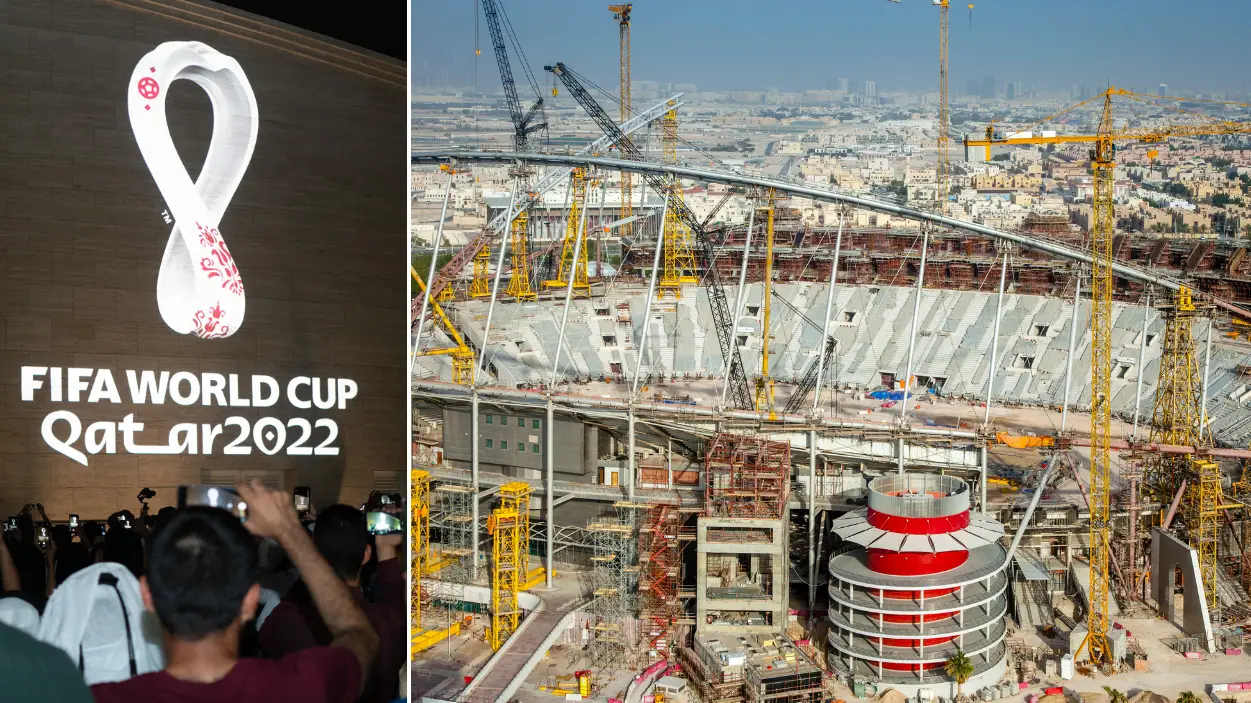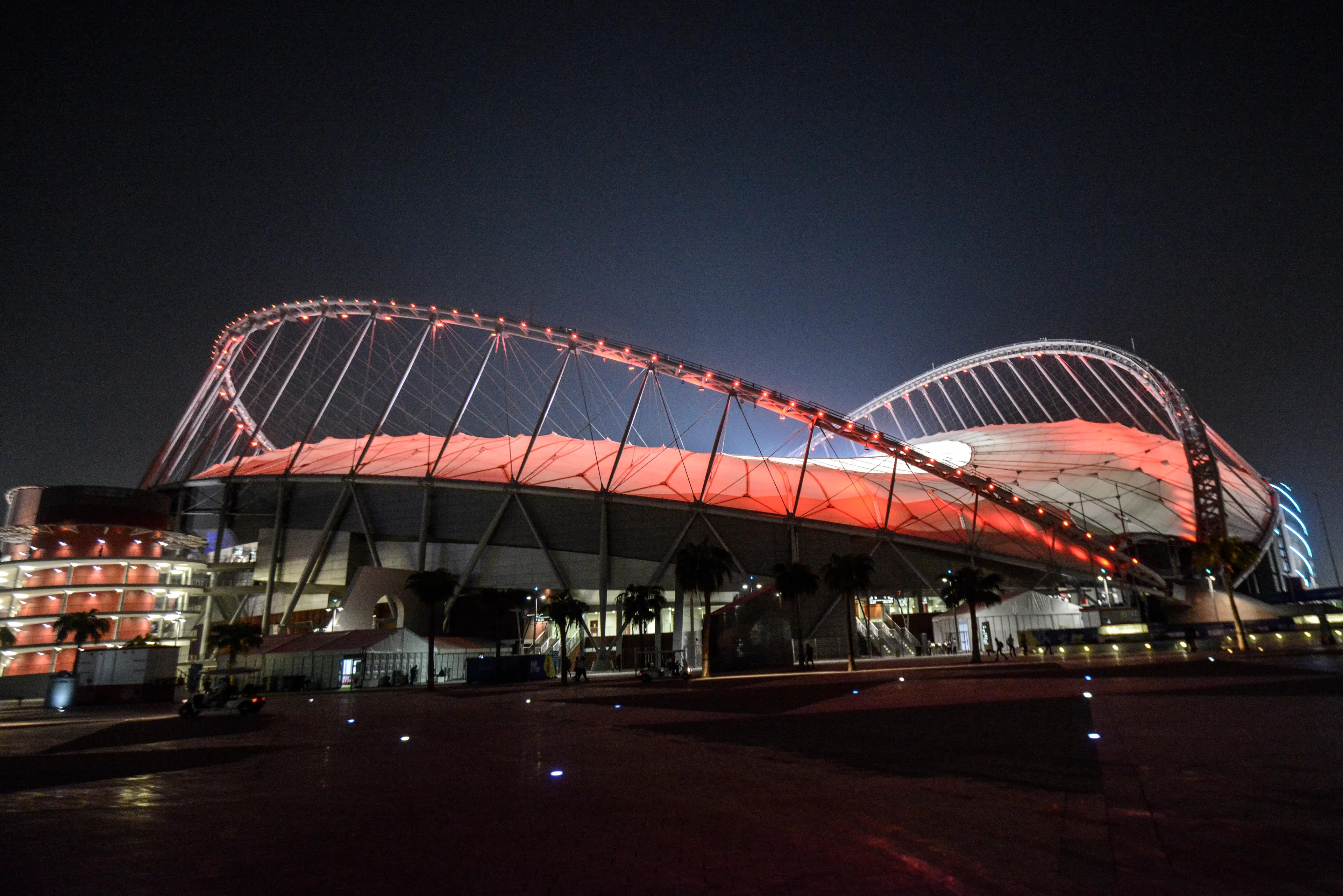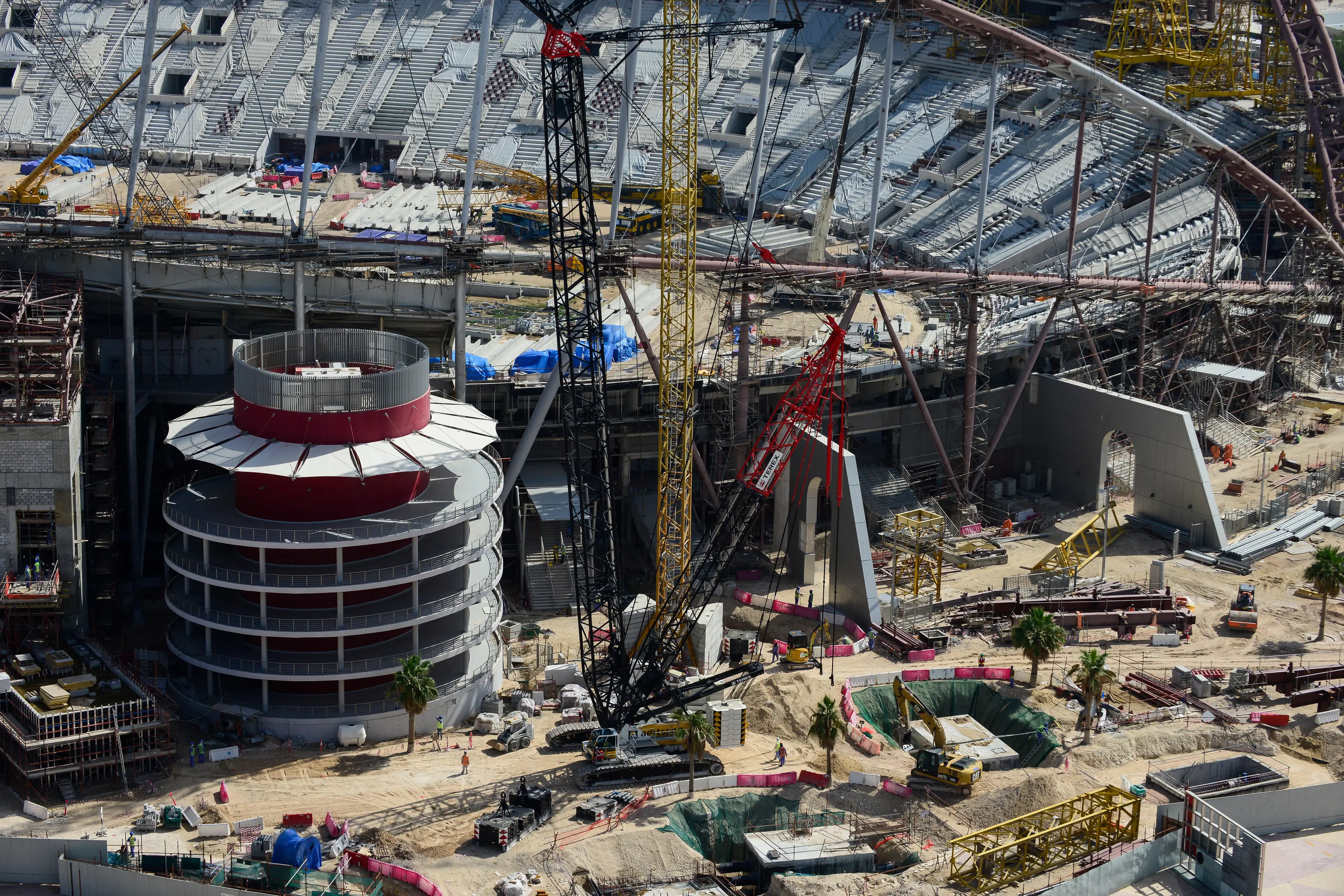
Qatar World Cup organisers have admitted that some workers have been exploited while working on projects linked to FIFA tournaments in the country.
A new report published by human rights organisation Amnesty International, which was released just days after the World Cup draw in Doha, has claimed some security guards were subjected to conditions "which amount to forced labour".
It comes after an investigation which documented the experiences of 34 employees from eight private security companies.

Advert
The report claims that some security guards were forced to work more than the legal maximum of 60 hours each week, while some have described working for months or even years without a day off.
Amnesty International says the workers were employed by private companies which provided services for sites including football stadiums as well as other infrastructure projects essential for the tournament, which begins on November 21.
According to the BBC, at least three of the companies provided security for recent FIFA tournaments in Qatar, including the 2020 Club World Cup and the 2021 FIFA Arab Cup.
Qatar World Cup organisers, the Supreme Committee for Delivery and Legacy (SC), have acknowledged the failings in a statement, which read: “Three companies were found to be non-compliant across a number of areas.

“These violations were completely unacceptable and led to a range of measures being enforced, including placing contractors on a watch-list or black-list to avoid them working on future projects – including the FIFA World Cup – before reporting said contractors to the Ministry of Labor for further investigation and punitive action.”
Qatar’s human rights record and its treatment of migrant workers have been criticised since the country was awarded the right to host the tournament back in 2010.
According to The Guardian, more than 6,500 migrant workers have died in Qatar since it was announced as the host nation, with 37 deaths directly linked to the construction of stadiums for the tournament.
Male homosexuality is punishable by a prison sentence in Qatar, while same-sex marriages are not recognised by the government. Women’s rights are also restricted due to male guardianship laws in the country.
England manager Gareth Southgate has previously voiced his concerns over Qatar’s suitability to host the World Cup.
The Three Lions held a meeting over the recent international break to discuss how the squad might express their concerns over human rights abuses in the country.
But Southgate has seemingly ruled out England boycotting the tournament.
"I don't really know what that achieves. It would of course be a big story but this tournament would go ahead," he said.
"The fact is unfortunately, the biggest issue that is probably non-religious or non-cultural is what happened with the building of the stadiums. There's nothing we can do about that either sadly.
"I think as soon as we've entered the tournament that's the point we decide. We've known for four years or eight years that this is going to be in Qatar."
Topics: Qatar, Football World Cup, FIFA, Football